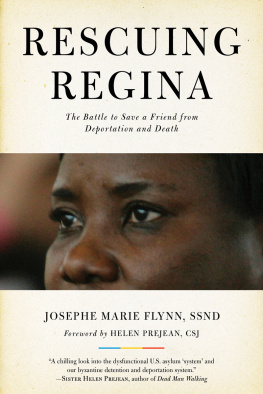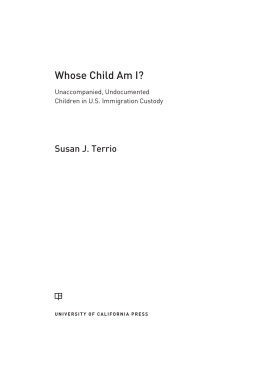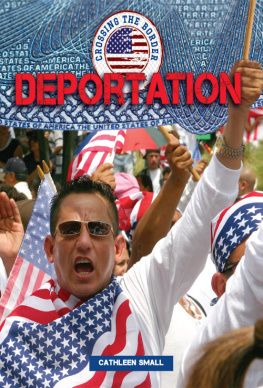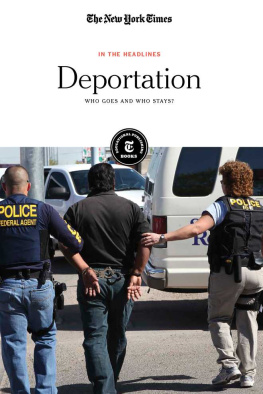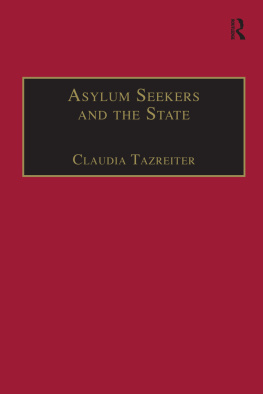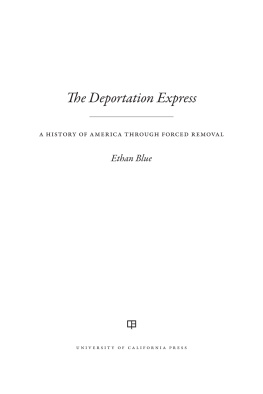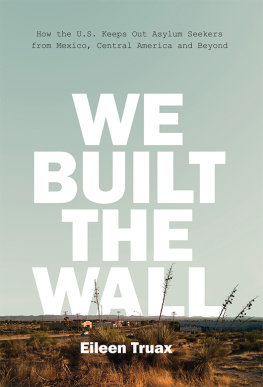

Library of Congress Cataloging-in-Publication Data
Flynn, Josephe Marie.
Rescuing Regina : the battle to save a friend from deportation and death / Josephe Marie Flynn ; foreword by Helen Prejean.
p. cm.
Includes bibliographical references and index.
ISBN 978-1-56976-624-8
1. Asylum, Right ofUnited States. 2. DeportationUnited States. 3. Emigration and immigrationGovernment policyUnited States. I. Title.
JV6601.F55 2011
323.631dc22
2011011117
Interior design: Scott Rattray
2011 by Josephe Marie Flynn, SSND
All rights reserved
Published by Lawrence Hill Books
An imprint of Chicago Review Press, Incorporated
814 North Franklin Street
Chicago, Illinois 60610
ISBN: 978-1-56976-624-8
Printed in the United States of America
5 4 3 2 1
To asylum seekers and refugees, arguably the most needy and courageous of all the worlds migrants

C ONTENTS

F OREWORD

Some have called me a hero for my fight against the death penalty. If anything, Id call myself a reluctant hero, someone who simply cannot turn away from cruelty and injustice. The same could be said of Sister Josephe Marie Flynn, who, after years of shying away from anything remotely resembling advocacy, found herself in the forefront of the struggle to save from deportation Regina Bakala, a Congolese torture survivor in the United States.
Rescuing Regina: The Battle to Save a Friend from Deportation and Death is a chilling look into the dysfunctional US asylum system and our byzantine detention and deportation system. Regina, a wife and mother of two young children living in Milwaukee, fled persecution in the Democratic Republic of Congo, where she had been sexually tortured, as had her husband, David. One early evening, as she walked out of the shower in her pajamas, she was picked up by Immigration and Customs Enforcement and whisked awayto a destination unknown. In a panic, David called their good friend and supporter Josephe.
Josepheaided by the hastily assembled Save Regina groupquickly learns how difficult it is to work with a nameless, faceless, inhumane bureaucracy reachable only through lawyers or elected officials. Immigrants are presumed guilty, not innocent. The system is harsh, making no distinction between immigrants and convicted criminals. The lawyers tell Josephe this is a dead-end case.
Rescuing Regina describes how Josephe and the Save Regina troops create a media campaign to spotlight Reginas plight. The book portrays Reginas fierce determination to keep her children from being orphaned as she had been. The story of friendship between the reluctant advocate and the tenacious mother will both warm your heart and outrage you. It is a powerful book.
Helen Prejean, CSJ
Author of Dead Man Walking
P REFACE

Someone recently asked me, So, how did you get involved in advocacy work?
Me? I laughed. Most of my life, I avoided the very thought!
Marinated in fear from childhood on, I remember my mother, an avid John Birch Society member, warning me in my early twenties that a covert Communist plot was already poised to take over the United States by 1976. I quickly became squinty-eyed about everything politically controversial. In fact, it wasnt until my thirties that I finally mustered enough courage to take a graduate course in social justice. When the teacher required three major papersSee, Judge, Actmy stomach clenched. Ambushed by my own panic, I sheepishly took her aside, begging for an alternate assignment or at least an exemption from the paper on social action.
That I would one day lead a major advocacy effort was unthinkable.
Thirty years later, as adult and family minister in St. Marys large parish in Hales Corners, Wisconsin, I found myself sitting across from a beautiful Congolese couple, Regina and David Bakala, each of them torture survivors seeking asylum in our country. They welcomed me into their journey, and years later, when their lives veered again into terror, they turned to me. While pulling out all the stops to help them, I found myself also being healed.
This is a story that needs to be told.
P ART I
T RAGEDY UPON
T RAGEDY
1

T HEY T OOK R EGINA!
Sister, we have a problem.
Hi, David. Whats the problem? David rarely calls. I cradle the phone between my cheek and shoulder and continue unpacking my groceries.
They took Regina!
What? I stop. What do you mean took Regina? Who took Regina?
Immigration!
No! I grasp the phone with both hands.
Yes! At six thirty tonight. Two policemen with guns.
I glance at my watch. An hour ago? But Reginas done everything right. This makes no sense. Pacing back and forth, I struggle to wrap my mind around what hes saying.
David and Regina Bakalas home country, the Democratic Republic of Congo (formerly Zaire) in sub-Saharan central Africa, is one of the most dangerous and unstable in the world. Each of them fled after being tortured for advocating democracy. Regina was beaten, raped, and imprisoned. If sent back to Congo, she faces grave danger, even death.
I freeze. O God, what if theyve already taken her to Milwaukees Mitchell International? What flashes to mind is another case, that of a local immigration lawyer awakened in the dead of night two years ago by a panicky client calling from an airport in Paris. She had been picked up by Immigration and Customs Enforcement (ICE) and promptly put on a plane back to Pakistan. They took her newborn to the father who had tipped them offan abusive alcoholic against whom she had a restraining order. ICE did not know her asylum petition was pending with US Citizenship and Immigration Services (USCIS). Nor did it matter anymore. I know from working with other immigrant families that once deported, the person has no legal standing in our system, so all pending petitions are simply droppedan all-too frequent occurrence.
Ill be right over, David! Their house is less than three miles from my upper flat, the unit I rent in a two-family house. I grab my winter jacket from the clothes tree, toss the carrots into the refrigerator, slip on boots and gloves, scoop up my purse, and fly down the stairs.
As I pull away from the curb, a wave of depression engulfs me. O God, how can I deal with this now? Its Tuesday of Holy Week, my busiest time of year, and these six weeks of Lent have been full of tears. Longstanding digestive problems are forcing me to retire. Probable causechildhood abuse. Im more than tired, Im emotionally exhausted. Writing the autobiography required for next falls sabbatical has dredged up years of unresolved psychological pain. I stop at the red light, feeling shaky and unsettled. Gone is the private retreat I had been banking on for Easter week.
Next page
